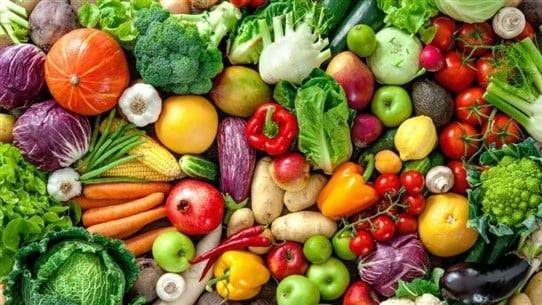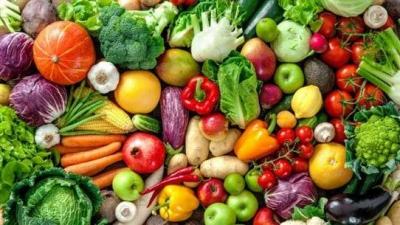With the spread of cholera in Lebanon and the rise in the number of cases, specialists and doctors have started disseminating ways to prevent it, to avoid contracting this bacterial infection that is primarily transmitted through contaminated water. Many warnings and alerts have been issued regarding the consumption of vegetables and fruits that could cause the disease unless they are washed and disinfected properly, or even if they are irrigated with foul water. How has the sale of agricultural products been affected following the emergence of cholera in Lebanon? What water is used for irrigating agricultural plains and inland areas?
Antoine Hawi, president of the Lebanese Farmers' Association, reveals to "Al-Markazia" that "weeds were the most affected due to fear campaigns, especially since their source is unknown, leading to a decrease in consumption rates and, consequently, prices dropped due to reduced demand. For example, the price of 24 bundles of parsley used to range between 150,000 and 200,000 Lebanese pounds, but has now fallen between 40,000 and 100,000 pounds." He explains that "water pollution in Lebanon has three types: the first is bacterial, which can cause infectious diseases like cholera. Chlorine disinfection can kill bacteria, but its residues are hazardous to health. The second type is pollution from heavy metals like arsenic and iron, among others, from industrial factories, which enter the body without exiting, causing serious health problems due to accumulation. The third type is hospital waste; for instance, around 10 of 12 hospitals in the Bekaa release their waste into rivers. Therefore, household waste leading to cholera is less dangerous than the other two types that cause cancer."
Hawi clarifies that "water is suitable for irrigation if the bacteria per milliliter is less than 1000," adding, "Lebanon is divided into regions with clean springs and wells and others that are contaminated. Water is clean particularly in areas without high population density, such as Ras Baalbek, the Qaa, distant Bekaa plain from the Litani River, all of the Beka’a Mountains (Miroba Mountains), and the high mountains, as well as the Marjeyoun plain and other southern plains near the Palestinian border. In contrast, population density means water pollution, although some coastal areas have clean water."
He points out that "the Ministry of Health and Agriculture has not taken any measures, even to test irrigation water, after the cholera outbreak," noting that "in 2017, I was part of the Lebanese and Safe project to sort agricultural production from the source, and we conducted hundreds of tests on farmers' water, resulting in findings that differentiated clean from contaminated water based on regions, identifying sources of pollution. The state has not supported or followed up this personal effort, and it has not launched initiatives that benefit the consumer."
He continues, "The problem is the direct responsibility of the state, which is the sewage systems in the rivers. All inland areas that do not discharge their sewage pipes into the sea turn them into water channels in the valleys. Additionally, during times of war, wells were dug in several areas to divert sewage water there," reminding that "hundreds of millions of dollars were spent to create about 100 sewage treatment plants, implemented by the Council for Development and Reconstruction, but most of them are out of service. A special law was also enacted to tackle the pollution of the Litani River, with an allocation of between 800 million to one billion dollars to clean it, yet no steps have been taken in this regard, resulting in massive pollution of wells and springs as polluted river water seeps into groundwater layers."
Hawi concludes, "The farmer is not responsible at all for the pollution; it is the state's responsibility to follow up on the issue, but it is negligent, and all that is said remains ink on paper."




